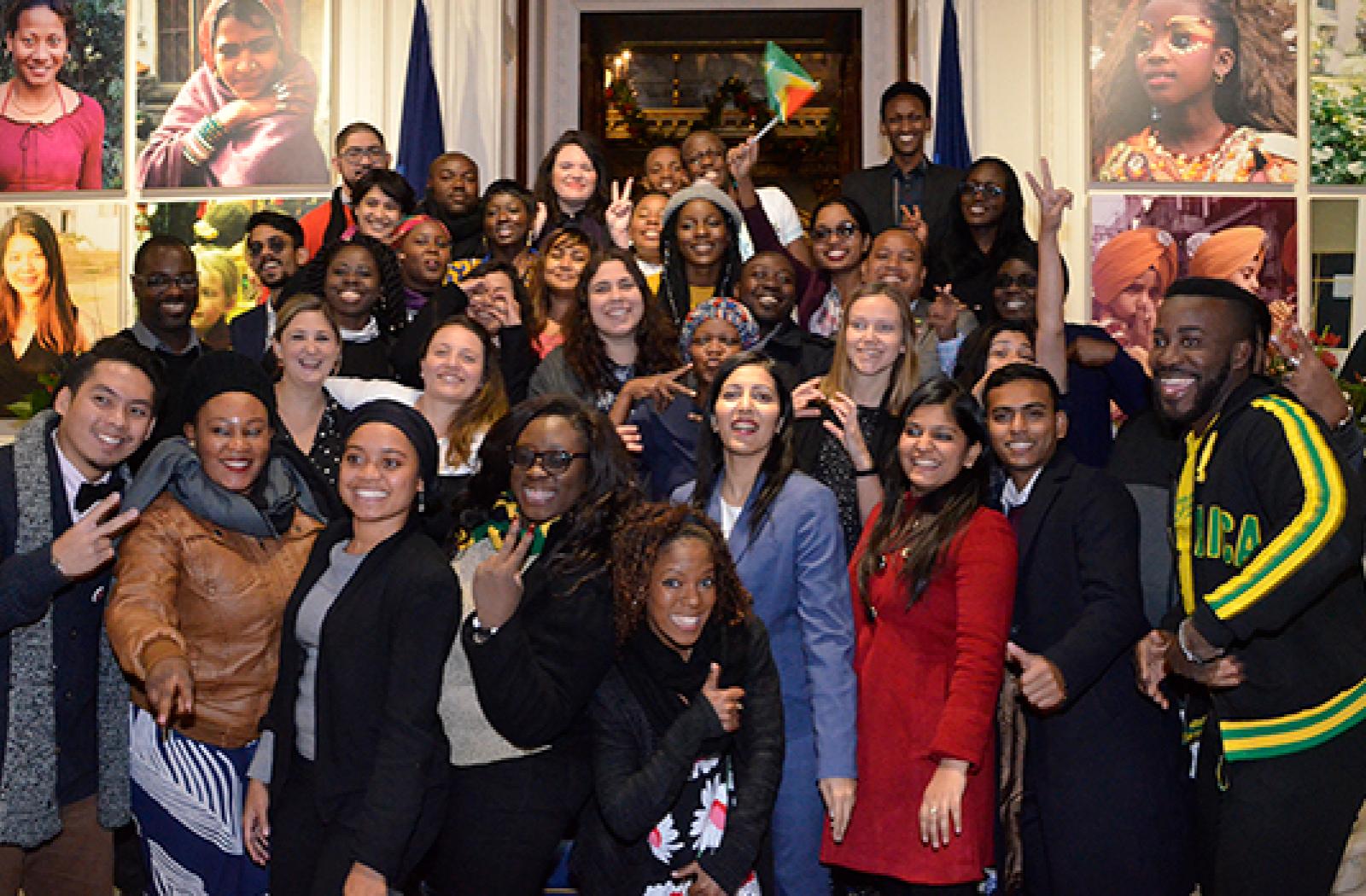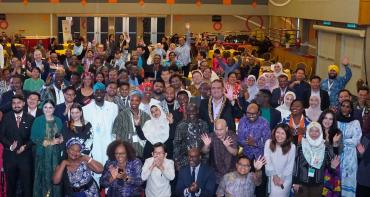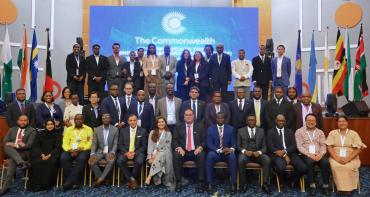Thirty-seven participants aged between 19 and 30 from across 22 Commonwealth countries recently took part in a five-day course to help develop effective strategies in combating hate speech.

We are waging a war against violent extremism and we must give young people the tools they need to combat oppressive narratives, xenophobia and hate speech, says Mark Albon, head of the Commonwealth’s unit to counter violent extremism.
He was speaking at the end of a five-day course run by the Commonwealth Secretariat and the Council of Europe to help young activists, youth workers, teachers, policy officers, lawyers and government officials develop effective strategies to deal with hate speech.
Thirty-seven participants aged between 19 and 30 from across 22 Commonwealth countries took part in the programme.
“These are young people who work at the very grassroots. They are helping their communities to change, create or implement laws, transform attitudes and craft new narratives. They are also challenging those who have committed themselves to sowing seeds of hatred, particularly in the minds of the young,” said Mr Albon.
CVE No Hate Speech training interviews 3
He added, “The big question we posed to participants is ‘how can we exchange doctrines of hate, spite and discord for messages of unity, tolerance, understanding and collaboration?’ And I was very happy to see participants from every corner of the Commonwealth, because, ultimately we want to empower them to go back home and flood their communities with narratives that promote inclusion and peace.
In addition to receiving training in campaigning, project management and using human rights agreements and treaties, the young people were also challenged to confront their own biases, stereotypes and prejudices. Some admitted to being the victims of hate speech and bullying, and some admitted to bullying others in the past.
“Hate speech can be tribe against tribe, political party against political party. It can be youth attacking each other using words that incite hate and that can also lead to violence,” said one participant. Others spoke about how hate speech was destroying the fabric of their communities and causing deep division.
CVE No Hate Speech training interviews 2
It was important, facilitators said, for the young people to achieve a new level of self-awareness and have a common and deep understanding of hate speech.
Menno Ettema, coordinator for the Council of Europe’s No Hate Speech Movement said the programme provided a step-by-step guide to help young people to understand and assess hate speech, design counter narratives and human rights responses, plan new strategies, implement successfully and monitor impact.
He said, “This training was about mobilising young people to take action on hate speech by promoting human rights. They learned how to analyse hate speech –what’s the oppressive and discriminating narrative behind the words that it tries to justify? Then to promote and develop a response - what is our story, what’s our message of inclusion and human rights and how do we communicate this to (other) young people so get them on board?”
Facilitators said that the participants have now formed new alliances. “What we have seen during this training is the creation of many collaborations between countries that are thousands of miles apart. Writing letters to refugees, hate speech awareness-raising campaigns, refining human rights and freedom of speech laws are just some of the things these young people plan to work on together,” said Mr Albon. This, he added, is a strong example of peace-building in the Commonwealth.
CVE No Hate Speech training interviews 1



